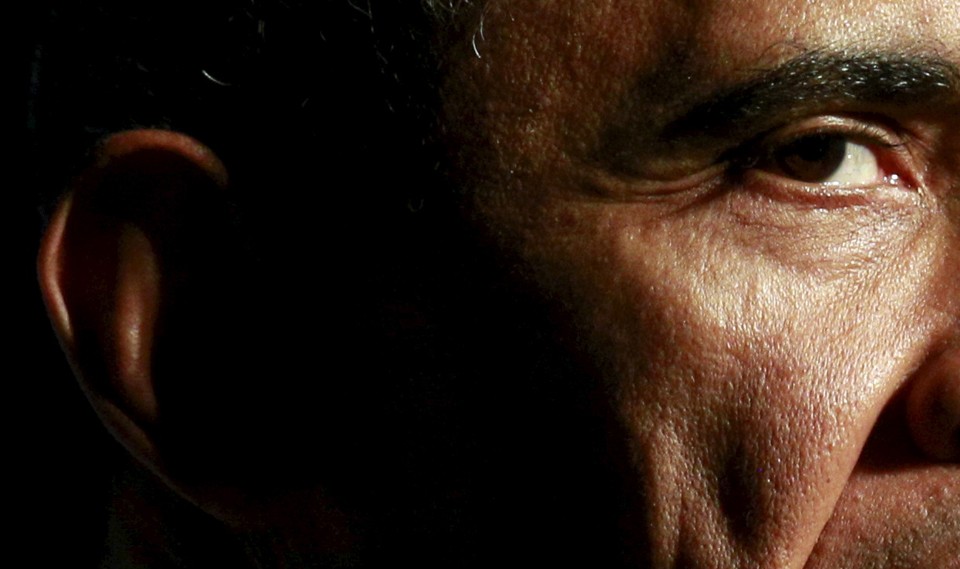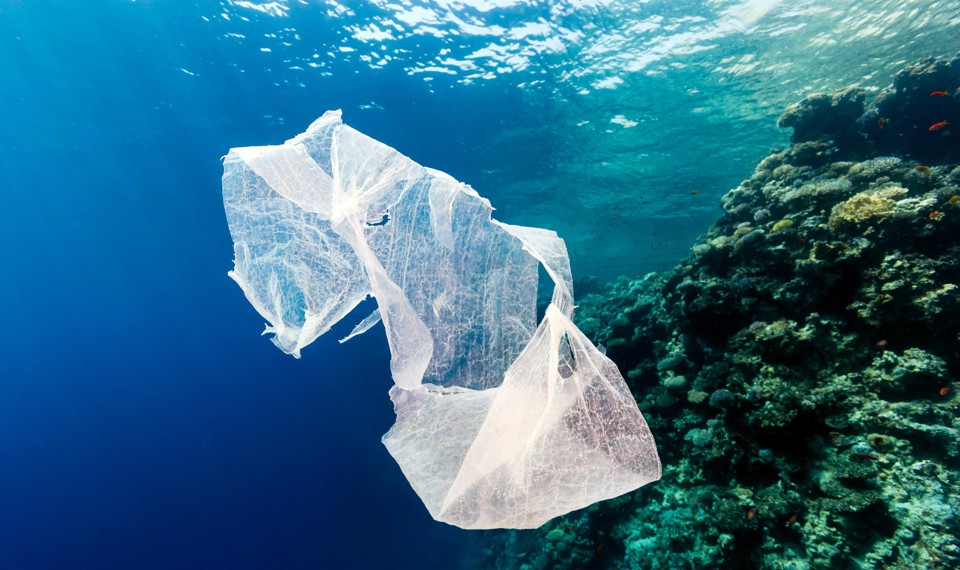The Ed's Up #213

When Your Eyes Move, So Do Your Eardrums
"Without moving your head, look to your left. Now look to your right. Keep flicking your eyes back and forth, left and right. Even if you managed to keep the rest of your body completely still, your eyeballs were not the only parts of your head that just moved. Your ears did, too. Specifically, your eardrums—the thin membranes inside each of your ears—wobbled. As your eyes flitted right, both eardrums bulged to the left, one inward and one outward. They then bounced back and forth a few times, before coming to a halt. When you looked left, they bulged to the right, and oscillated again. These wobbles happen every time you move your eyes, whether or not there's external noise. But no one knows why they happen." (Image: Kevin Lamarque)

The CDC Is About to Fall Off a Funding Cliff
Last October, I wrote that a $1 billion pot of money, which was used to help developing countries improve their ability to detect and respond to infectious diseases, is due to run out in 2019. That money has been used to train epidemiologists, buy equipment, upgrade labs, and stockpile drugs. If it disappears, progress will halt, and potentially reverse. The CDC, for example, would have to pull back 80 percent of its staff in 35 countries, breaking ties with local ministries of health. Which is exactly what is now happening. (Image: Tami Chappell)

In Science, There Should Be a Prize for Second Place
"This Monday, the editors of PLOS Biology—the flagship journal of Public Library of Science, a nonprofit publisher—published an editorial saying that they are now willing to publish papers that were scooped less than six months ago. And in a clever bit of rebranding, they’re abandoning the word “scooped” altogether in favor of calling these “complementary” papers. “Just as summiting Everest second is still an incredible achievement, so too, we believe, is the scientific research resulting from a group who have (perhaps inadvertently) replicated the important findings of another group,” the editors wrote." (Image: Yagi Studio)

The Making of Blue Planet II’s Incredible Deep Ocean Episode
"It features a love story between two shrimp. This species of shrimp, as larvae, will waft into a Venus’s flower basket sponge, and grow up trapped within its crystalline walls. It shows how abundant life can be in belching underwater volcanoes and the cold depths of Antarctica. It reveals bubbles of methane violently erupting from the ocean floor in front of a submersible’s headlights, like rockets launching in front of an angry sun. I talked to the producer Orla Doherty about rising—or perhaps, sinking—to the challenge." (Image: AMC Networks)
A Jawbone Is the Oldest Modern-Human Fossil Outside of Africa
"After more than a decade of work, the team has now confirmed that the Misliya jaw belonged to a modern human, and that it is even more ancient than the Skhul remains. At somewhere between 177,000 and 194,000 years old, it now holds the record for the earliest modern-human fossil outside Africa. It tells us that our species must have ventured beyond our birth continent far earlier than other fossils had suggested." (Image: Gerhard Weber)
11 Billion Pieces of Plastic Are Riddling Corals With Disease
"Coral reefs are meant to be riots of color, but those that Joleah Lamb studied in the Indo-Pacific were colorful for all the wrong reasons. Their branches and crevices were frequently festooned with plastic junk. “We came across chairs, chip wrappers, Q-tips, garbage bags, water bottles, old nappies,” she says. “Everything you see on the beach is probably lying on the reef. And it seems like it’s getting worse.” Whenever Lamb or her colleagues from Cornell University found a piece of plastic, they would lift it up to study the health of the coral underneath. And almost every time, that coral would be riddled with disease. “It’s just a disaster under there,” she says." (Image: Kathryn Berry)

A Study Suggests That People Can Hear Universal Traits in Music
"Imagine that you’re a researcher who has unlimited time and resources, and a time machine that can travel anywhere in the world. You use these wondrous gifts to get a recording of every song that has ever been sung, whether by people in big cities or those in small hunter-gatherer groups. You play these recordings to random volunteers, and ask them to guess the behaviors that were associated with each tune. Was the song used for dancing? For soothing a baby? For healing illness? Could people guess what songs are for by their sound alone, without any knowledge about their cultural context?" (Image: Sergio Moraes)Friends of the Ed's Up
Here's where I promote the work of people I care about--people who make incredible art that I think is worthy of your attention and support, but whose fierce intelligence is also match by a genuine warmth of spirit.Story Collider features true personal stories about science. In the latest episode of the podcast, biochemist Melanie McConnell encounters unexpected resistance when she tests an experimental cancer treatment, and rape survivor Mo Culberson helps train doctors to treat other rape survivors. Directors Liz Neeley and Erin Barker also run workshops teaching storytelling skills to scientists. And there are live shows coming up in NYC (Feb 6), DC (Feb 22), Granville (Feb 28), NYC (Mar 6), and St Louis (Mar 7).
Flash Forward is a podcast about the future run by Rose Eveleth. It's part radio drama, part science journalism, and a lot of fun. The latest episode is a retrospective on the amazing third season.
Gastropod is a food, science, and history podcast run by Cynthia Graber and Nicola Twilley. The latest episode is on dieting.
Convergence is a live show about the future, hosted by Meehan Crist. The next show, on February 8 in NYC, is on the future of the internet. Tickets are available here. It’s going to be a podcast soon.
The Brain Scoop is a video show about natural history, museums, and occasionally taxidermy, hosted by Emily Graslie. The latest episode is about the Sistine Chapel of taxidermy.
Climate Stories is a newsletter by Alice Bell, in which she writes wonderful weekly histories about the people of climate science. It's lively and fascinating. The latest one is about climate skeptics.
More good reads
- Forensic science put Jimmy Genrich in prison for 24 years. What if it wasn’t science? Meehan Crist and Tim Requarth have written an exceptional piece showing just how shoddy a lot of forensic science is. If you read one piece this week, make it this one.
- "The first year of Trump’s presidency has been defined by chaos. But more often than not, it’s the kind of chaos that threatens the vulnerable while sparing the powerful." McKay Coppins on how the swamp drained Trump.
- How scientists saved a bear, using fish-skin bandages
- Beautiful story on the discovery of fossils from a really young Earth. By Rebecca Boyle.
- Fish can feel pain—so what do we do about that? Ferris Jabr explores.
- 10 thoughts on the Aziz Ansari scandal from a sexual literacy educator. Thoughtful and nuanced.
- Chinese scientists have successfully cloned monkeys using the same method that created Dolly the sheep.
- “In a courtroom in Michigan, a variety of powerful women redefined what victim testimony can mean.” Sophie Gilbert on the athletes who testified against Larry Nassar, and the judge who gave them a chance.
- Werner's Nomenclature of Colours: the little book that helped Darwin encode an unfamiliar world—and carry its story safely home. By Michelle Nijhuis.
- "Yes, this is “Frank Sinatra Has a Cold,” but about a bear." I loved interviewing Maggie Koerth-Baker about her story of a really fecund panda.
You can also follow me on Twitter or find my writing at The Atlantic. My New York Times-bestselling book, I Contain Multitudes, is out now. If someone has forwarded this email to you, you can sign up yourself.
And that's it. Thanks for reading.
- Ed